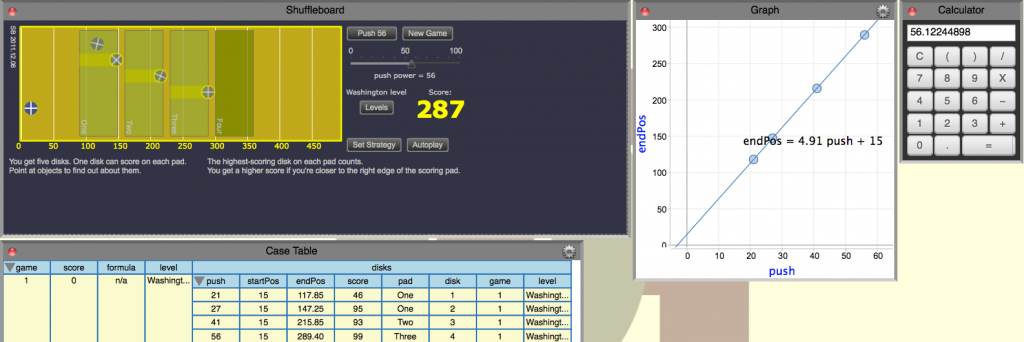According to a recent Wall Street Journal article, “Big Data’s Problem: Little Talent,” the technology industry faces a major dearth of employees with strong data analysis skills. The article quotes a 2011 study by McKinsey:
A significant constraint on realizing value from Big Data will be a shortage of talent, particularly of people with deep expertise in statistics and machine learning, and the managers and analysts who know how to operate companies by using insights from Big Data. We project a need for 1.5 million additional managers and analysts in the United States who can ask the right questions and consume the results of the analysis of Big Data effectively.
The Data Games project, an NSF-funded initiative of KCP Technologies and the Scientific Reasoning Research Institute at the University of Massachusetts in Amherst, aims to help address this gap by supporting today’s students in becoming tomorrow’s data scientists.
Last Friday I visited a Bay Area high school classroom to watch students play one of our new Data Games called Shuffleboard. The teacher began class by activating students’ prior knowledge, asking which of them had played Shuffleboard on a court, where you slide pucks along a surface and try to land them on different scoring pads. The further the puck comes to rest toward the end of each pad, the higher you score.
The first level introduced students to key aspects of the gameplay, where they realized that the challenge to the game is deciding how hard to push each puck. Most students gravitated toward a trial-and-error approach, and they can be successful in the first level with this method.
After they unlock the second level, however, students find they need to use their math skills to analyze the game data displayed in the graph in order to win. As the data points appear in the graph, students see that a linear model can fit their data well. They can then use the equation of their line to determine the appropriate push for the desired distance they want their puck to go.
Like all of our Data Games, Shuffleboard supports many of the new Common Core State Standards for Mathematics, especially in the area of developing students’ data analysis and modeling skills. Our Data Games are unique in that data is generated from students’ gameplay and presented to the students in tables and graphs. Students then need to make effective use of that data in order to win the games. We believe Game-Based Learning is a valuable approach to help students become data scientists in the 21st century workplace.
You and your students can play Shuffleboard and any of the other five Data Games right now here for free.
